SARAS participates in unprecedented art and science biennial in Chile
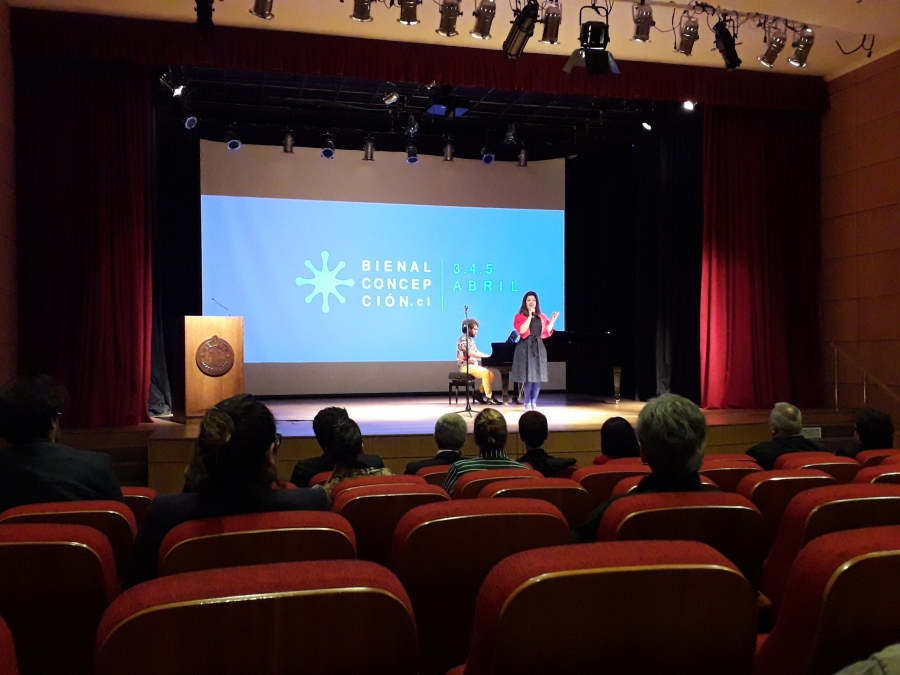
Since its inception, more than 10 years ago, SARAS vision has promoted the integration of the sciences and the arts as part of its pillars. In this sense, it has generated contributions about what it means to reunite these disciplinary fields usually found apart, especially when attempting to face the complex challenges that we currently face as a society.
Due to this experience, SARAS Institute was invited to participate in the “Zero Edition” of Concepción’s Art & Science Biennial, which took place in Chile from the 3rd to the 5th of April, 2019. This event represented the first initiative of this type in the context of the southern cone. With an unprecedented effort of collaboration between the Chilean universities of Concepción, University of Biobío and Católica de la Santísima Concepción, the organizing team proposed a pilot version with the aim of publicizing the project, as well as gaining experience so as to design and manage resources for the realization of the first official edition of the Biennial scheduled for 2021.
SARAS was invited to participate in the international panel: “Experiences of Art & Science, and how to establish collaboration networks in America”. During the first day of activities, Silvana Juri (SARAS Communications Assistant) opened this public session exposing the main achievements, learnings and connections that the institute has developed and accumulated in connection with researchers and artists from the region and the world. The international panel was completed by the conferences of Sara Adlerstein (applied water ecologist and visual artist – University of Michigan, School for Environment and Sustainability) and Genevieve Tremblay (co-founder of the ASKXXI Program and mentor in the Global Innovation Exchange at the University of Washington), who also commented on the main learnings and the different work approaches from their respective trajectories and contexts. The panel ended with an exchange between the three guests and the audience present in the auditorium of the University of Concepción, in which they delved deeper into the points and reflections presented during their talks.
It became very clear that the contribution of the arts to the comprehension, visualization and dissemination of complex topics, and especially around environmental challenges, is indisputable. At the same time, it was emphasized that creativity is a fundamental ingredient which must be reinforced during education within all fields of knowledge. Finally, it was highlighted that there is a need to weave networks of collaboration and to promote cooperation and collaborative work while overcoming the language barrier challenges that we may find.
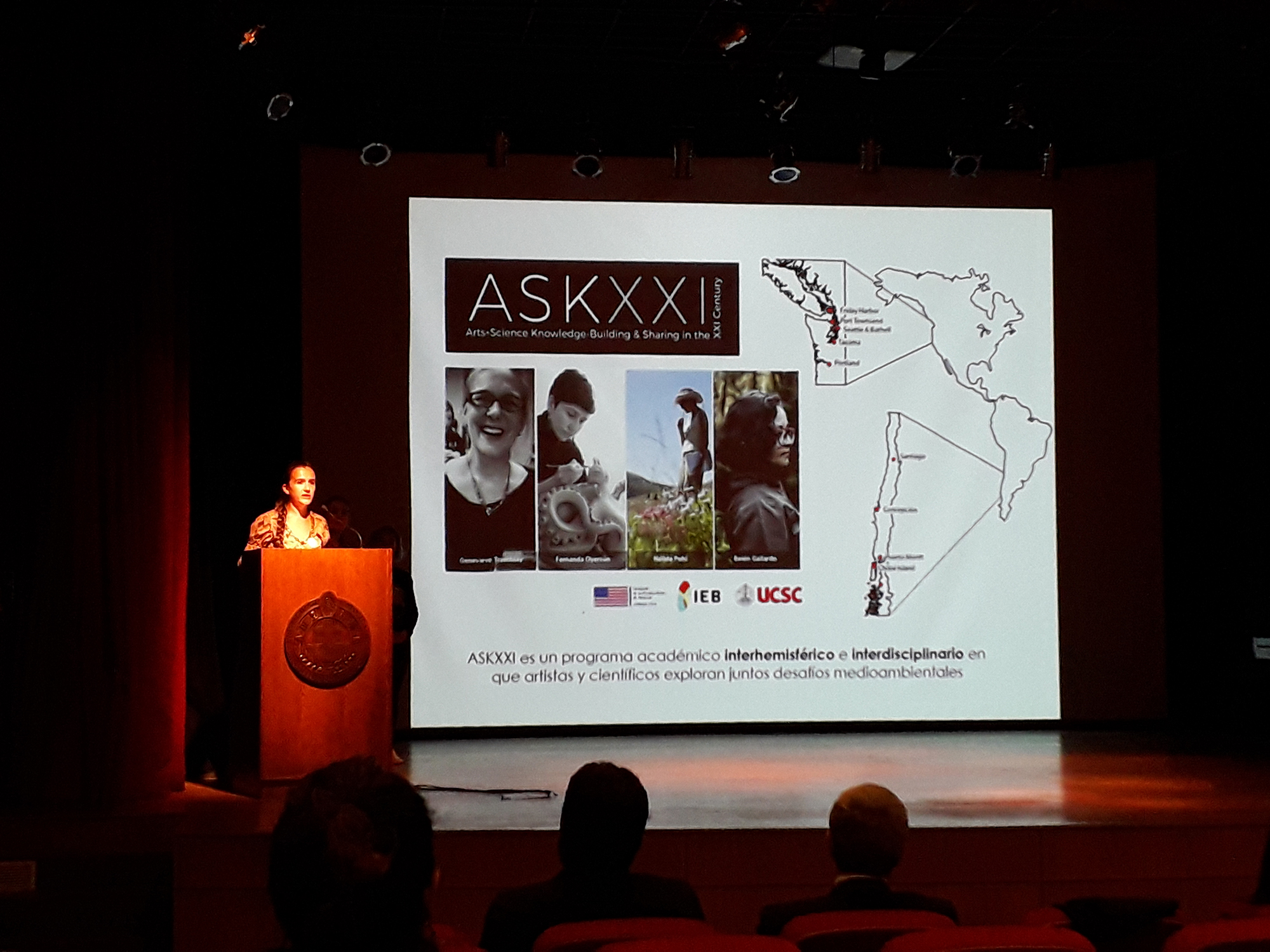
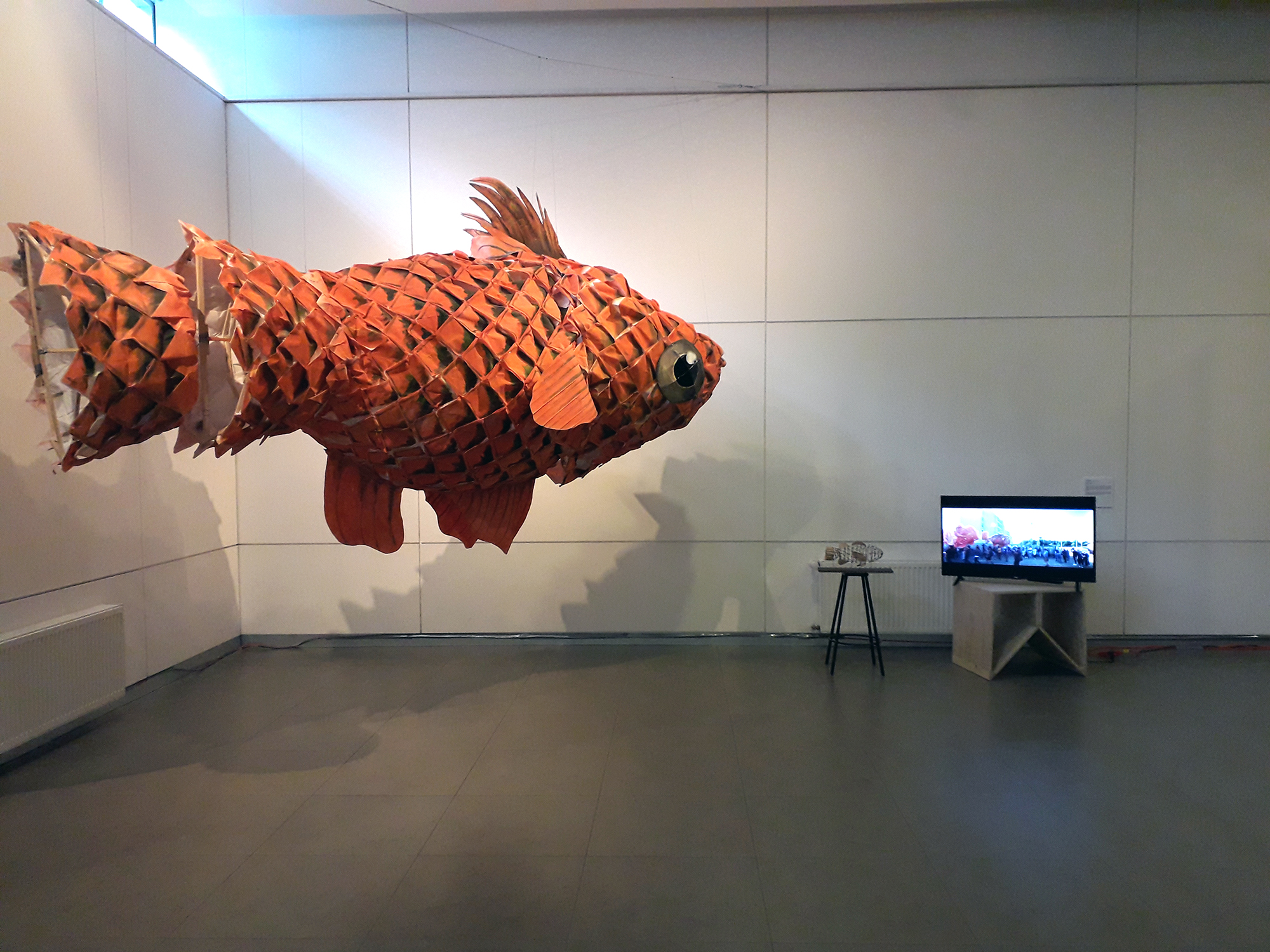
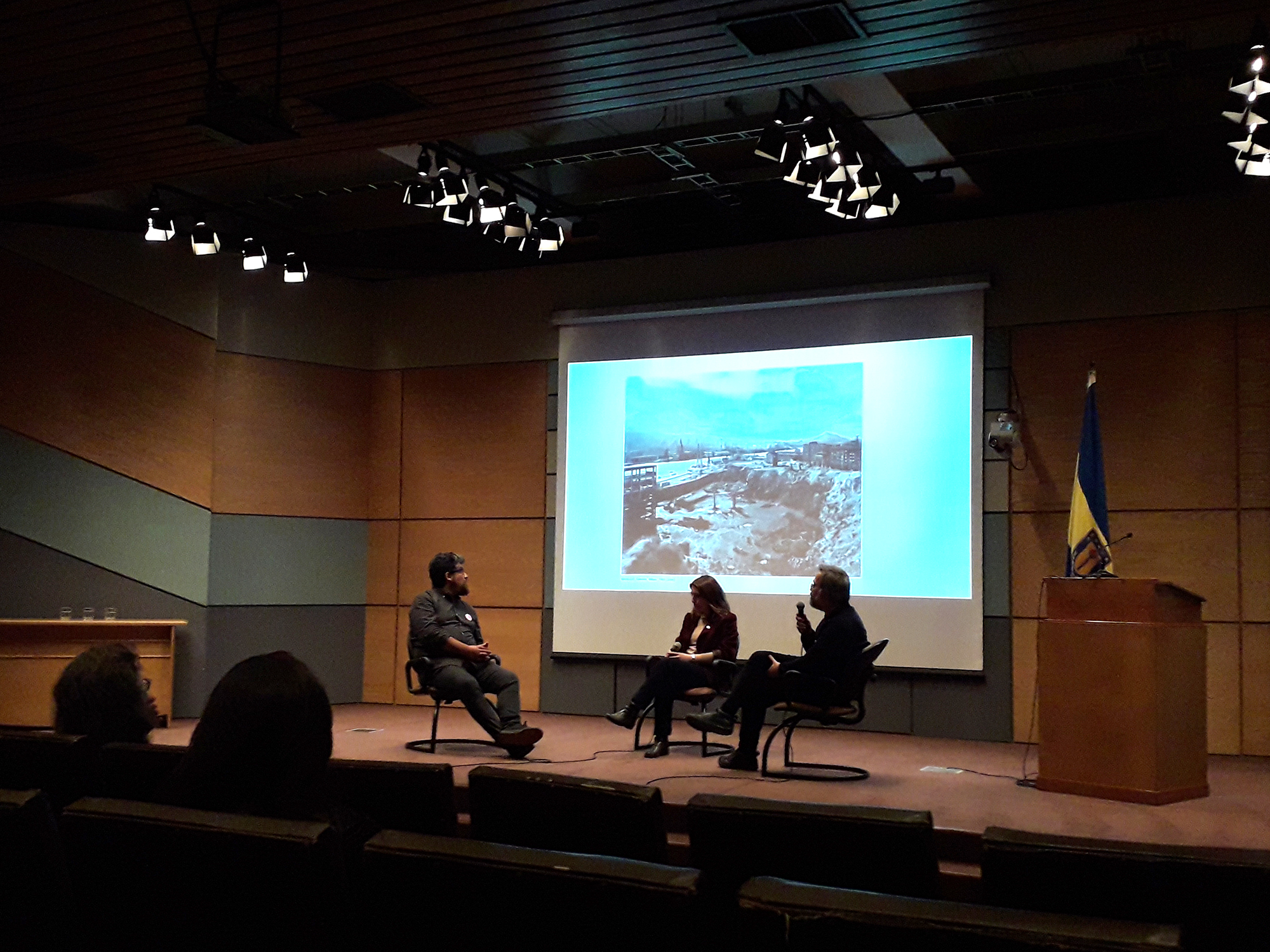
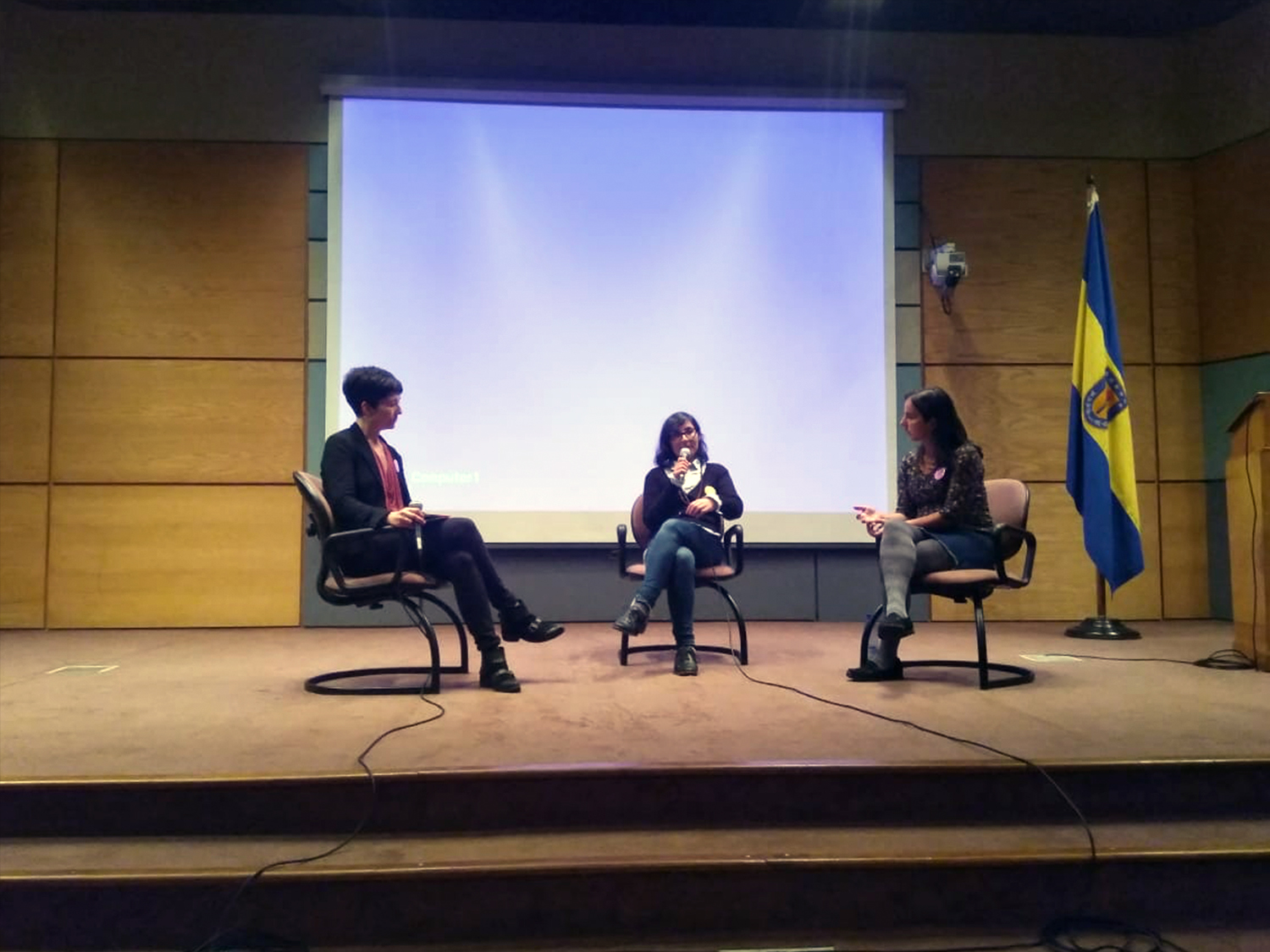
The challenge of co-creating an integrative biennial
The particular characteristic of this biennial was its emphasis on the co-creation of a space for the development of knowledge that can have an impact on society. For this purpose, two days of collaborative work were organized among a diverse group of guests. Members included artists, scientists, teachers and members of the Coliumo community, which is a coastal town and community that has been chosen to participate and benefit from the work and development of the First Biennial. With this goal and vision, the organizing team (comprised by Ronald Mennickent, Marianela Camaño, Nicolás Sáez and Fernanda Oyarzún) developed a space called The Circular Conversatory, for which special seats were designed and built so as to promote dialogue and teamwork between a diverse and previously unfamiliar group of people. At the end of the workshops, a solid and motivated group emerged which will now seek to continue working collaboratively for the next two years.
In parallel, the publicly open activities of the Biennial agenda led to discussions on the different aspects and challenges that arise from the confluence working between artists and scientists, or artists-scientists, and particularly, in community settings with their added territorial and social complexities. These sessions also served as an opportunity to display four concrete projects that were led by each of the organizers of the event, as a way of exposing different possibilities of approaches and products of working at the intersection between art and science. One of those works “Musicalization of the brightness of a star” (Musicalización del Brillo de una Estrella) was presented as a closing ceremony after the conference given by Adlerstein and Leslie Fernández (artist and researcher – Department of Plastic Arts of the Faculty of Humanities and Arts – University of Concepción), where they commented on how to approach the challenge of curating art and science projects.
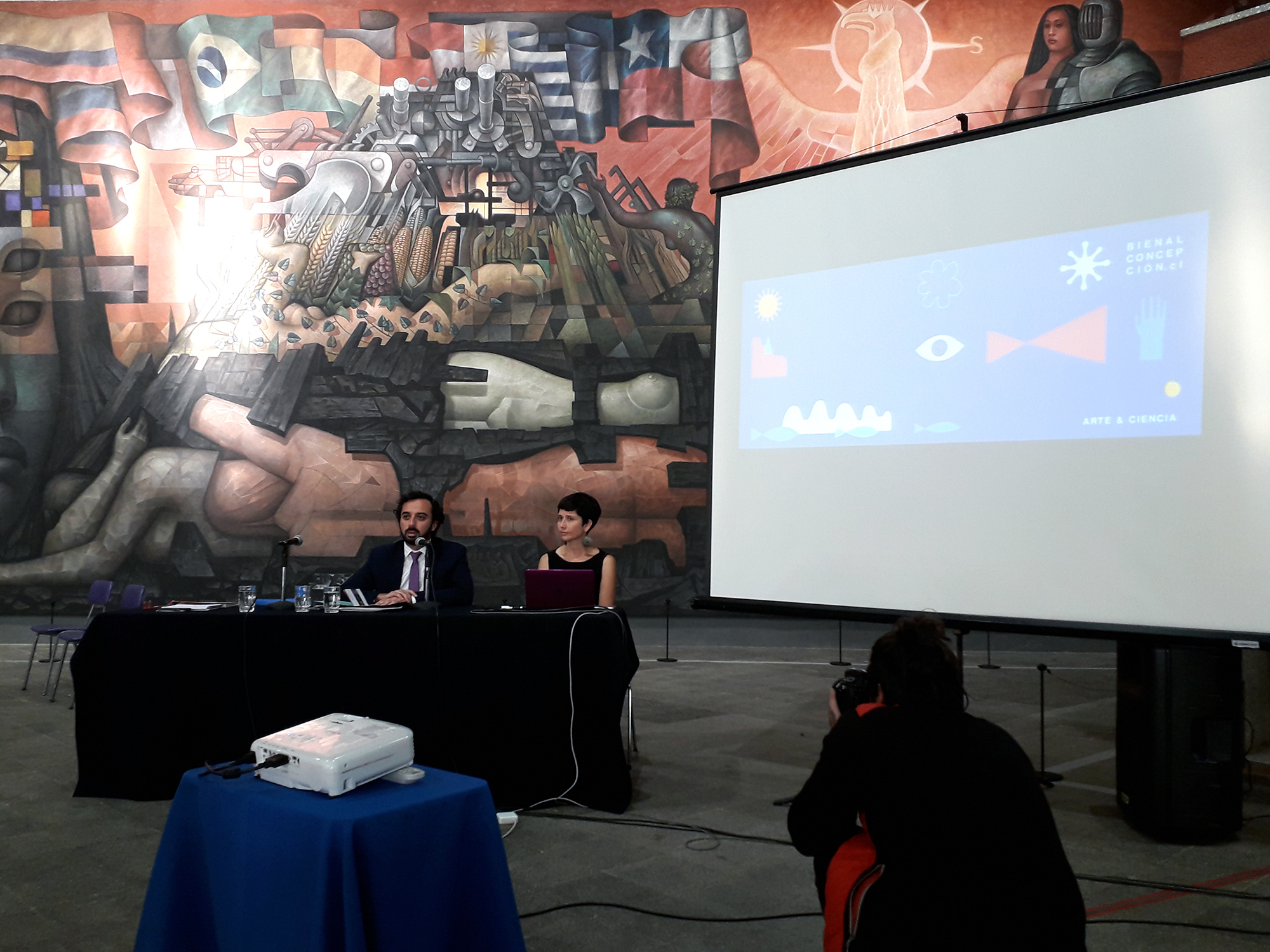
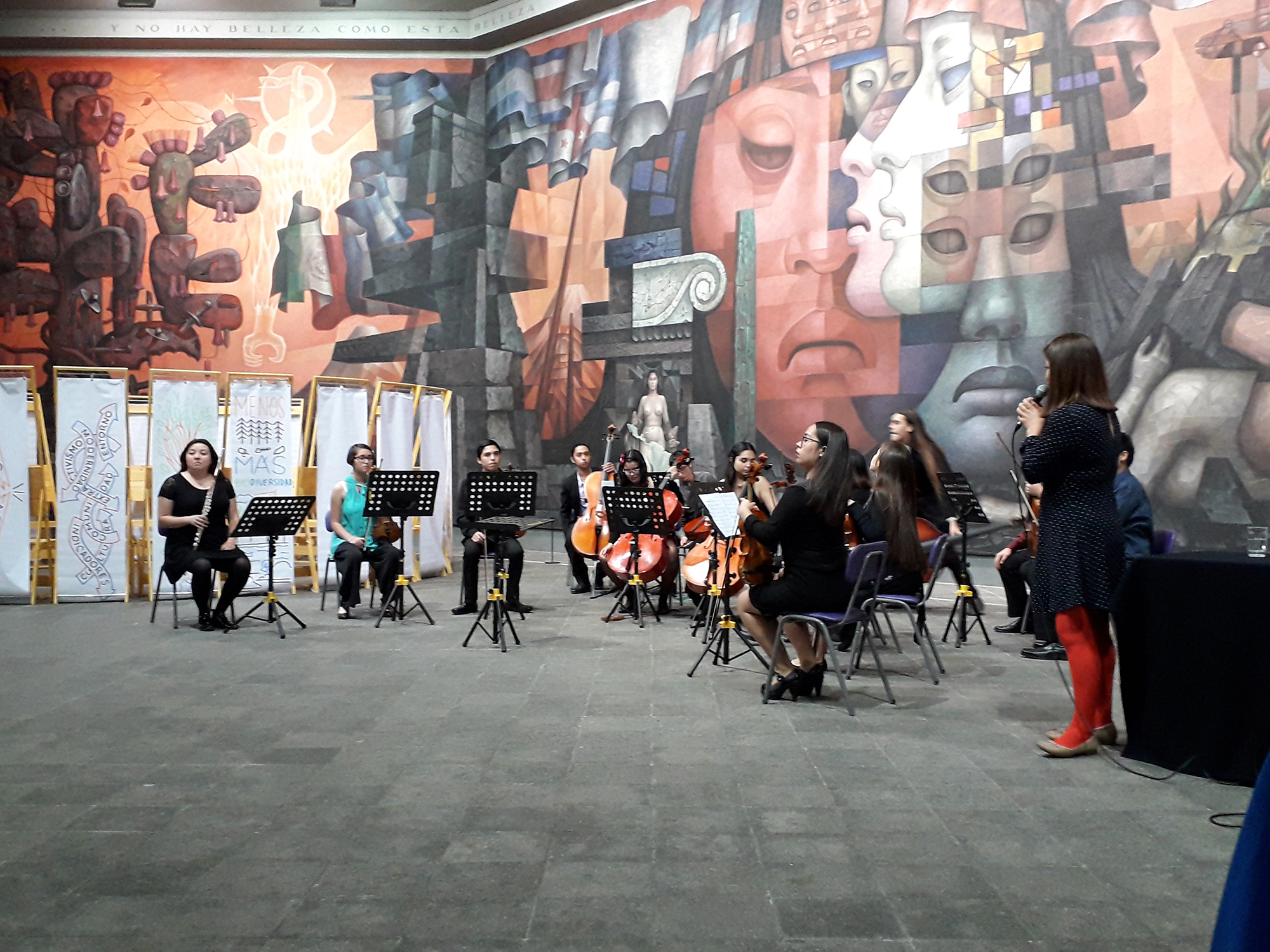
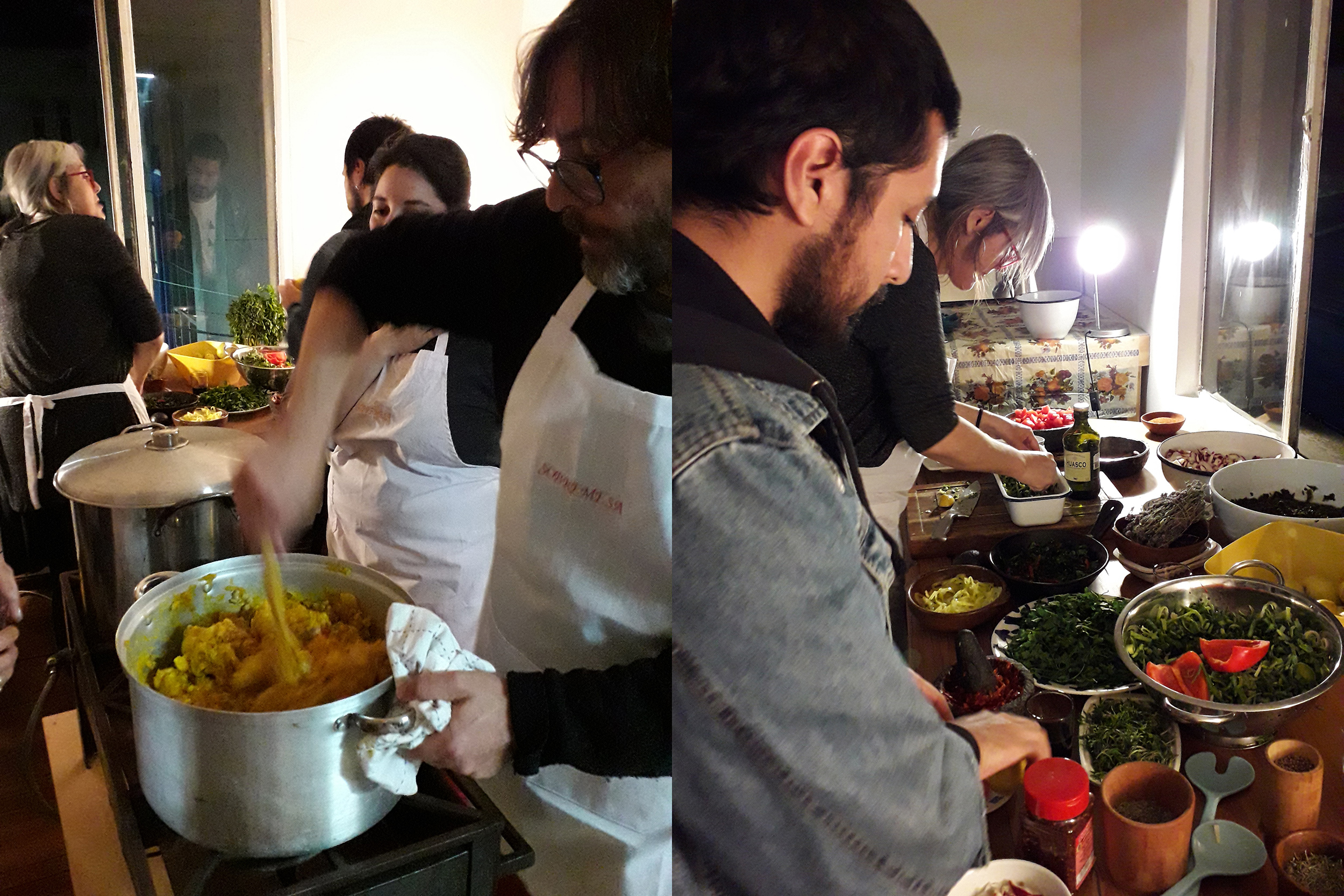
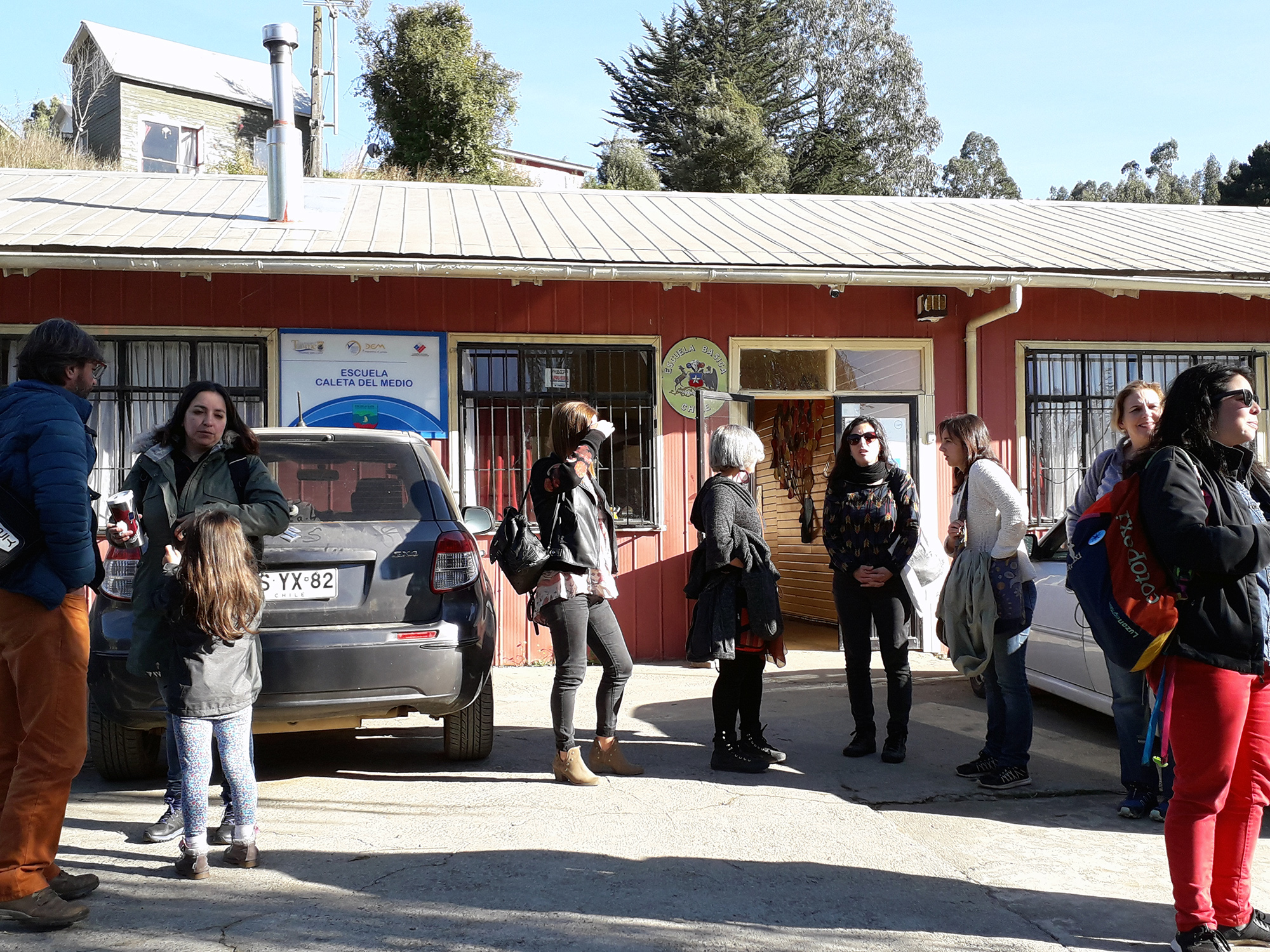
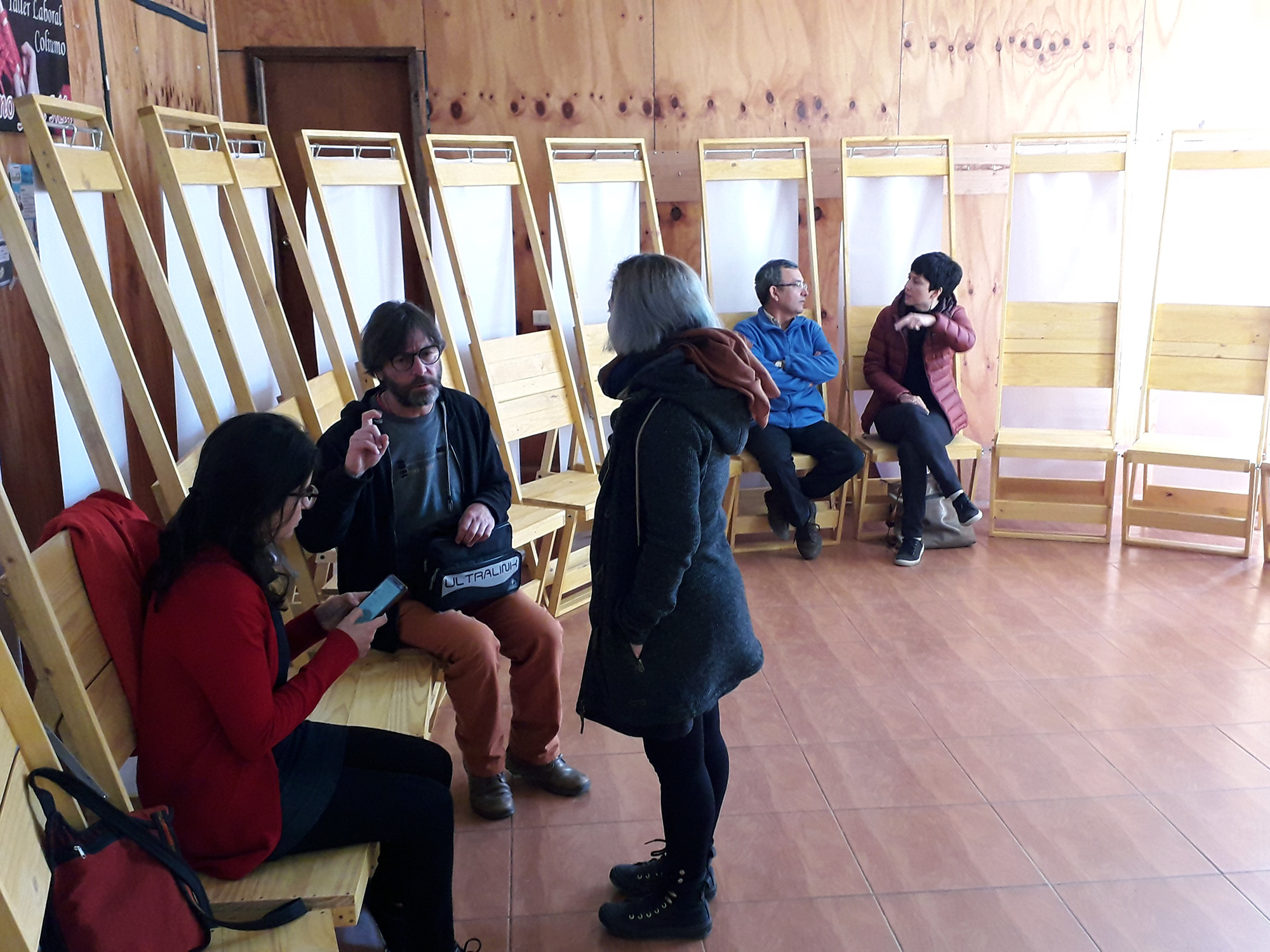
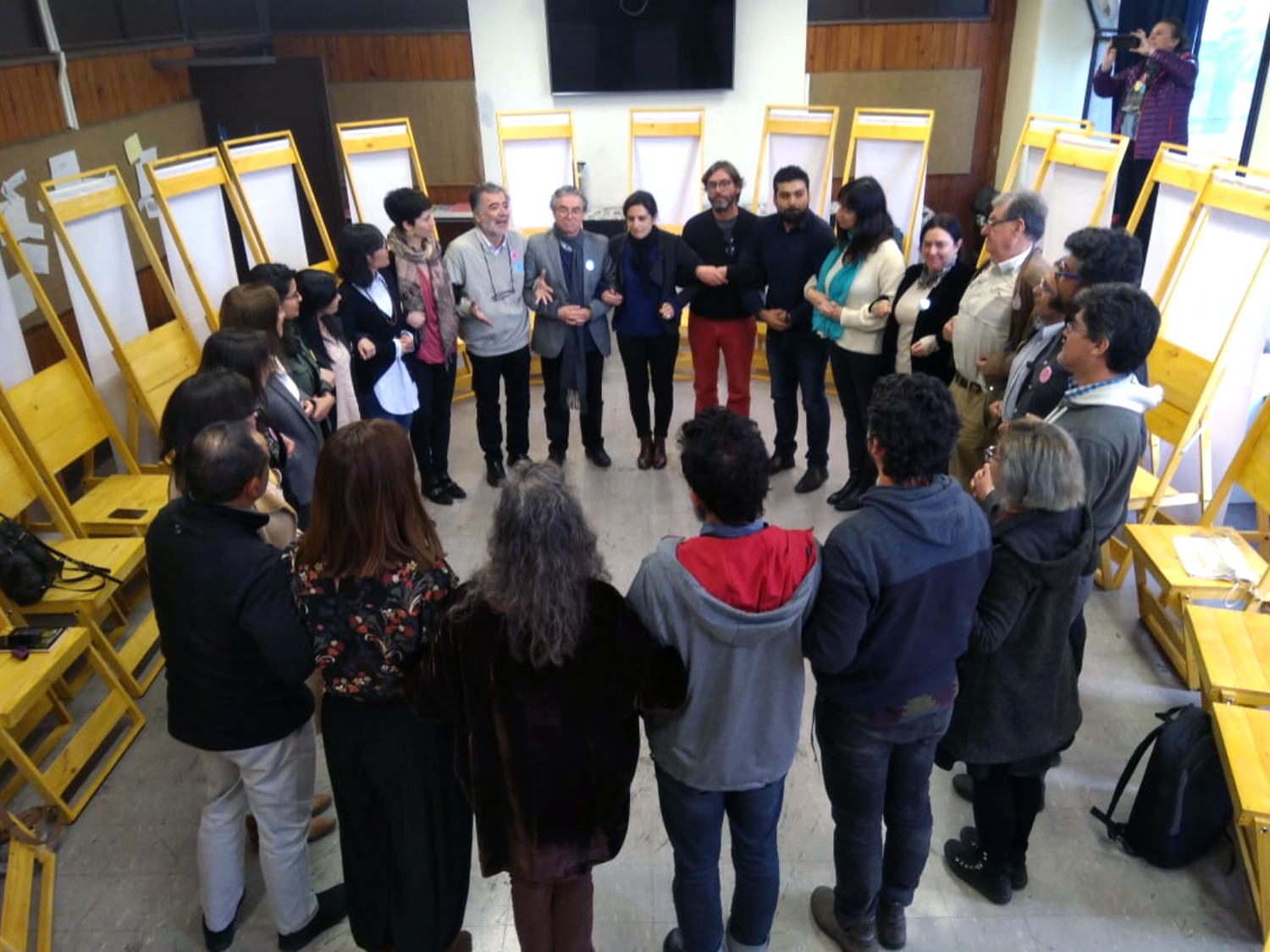
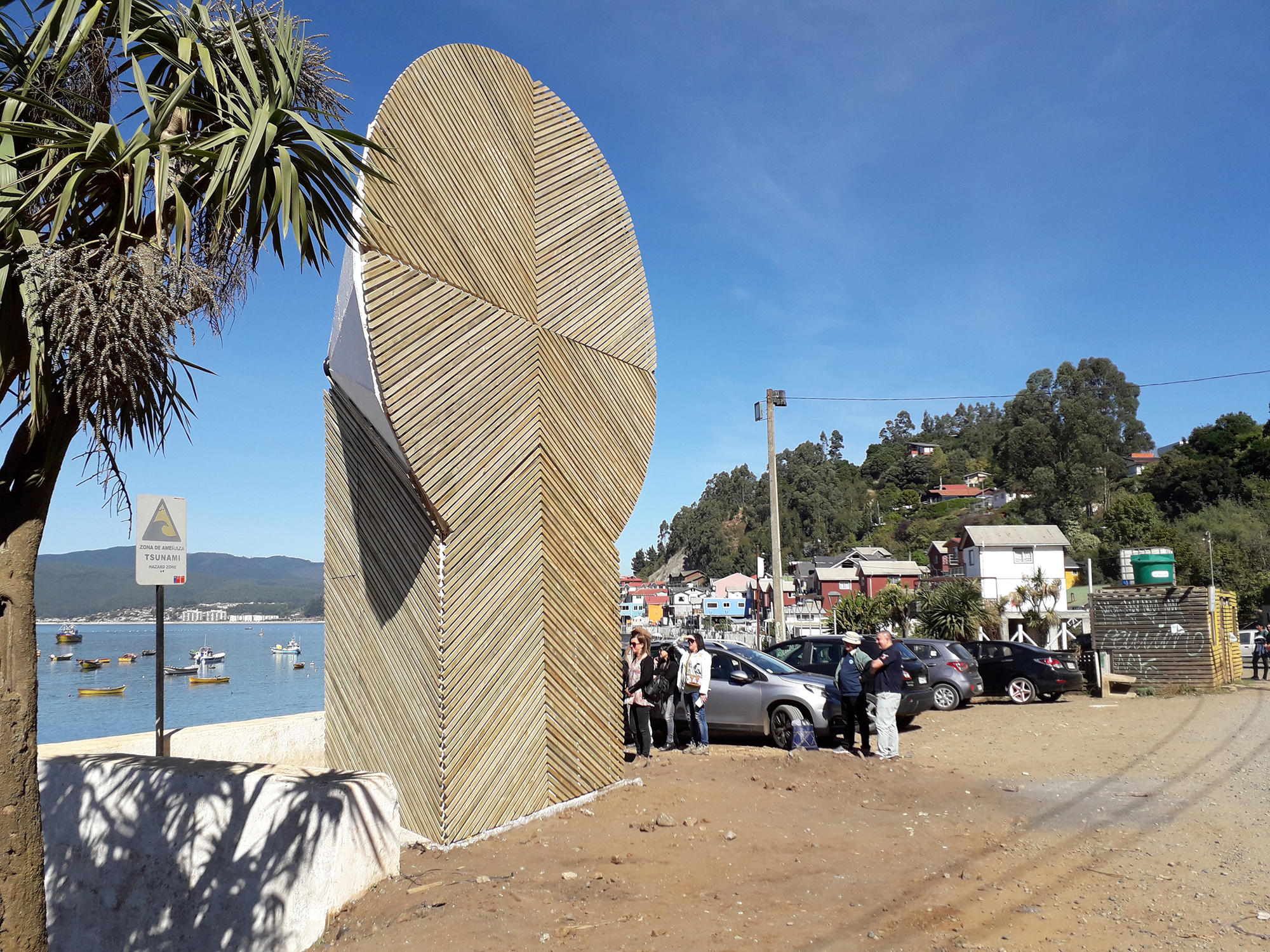
To learn more about the biennial, its participants and the presented works, click here to visit the website.
To learn more about SARAS work on Art & Science interactions, click here.
Click here to download PDF version of the presentation: “Art and science integration for sustainability: SARAS experience” (in Spanish only).
